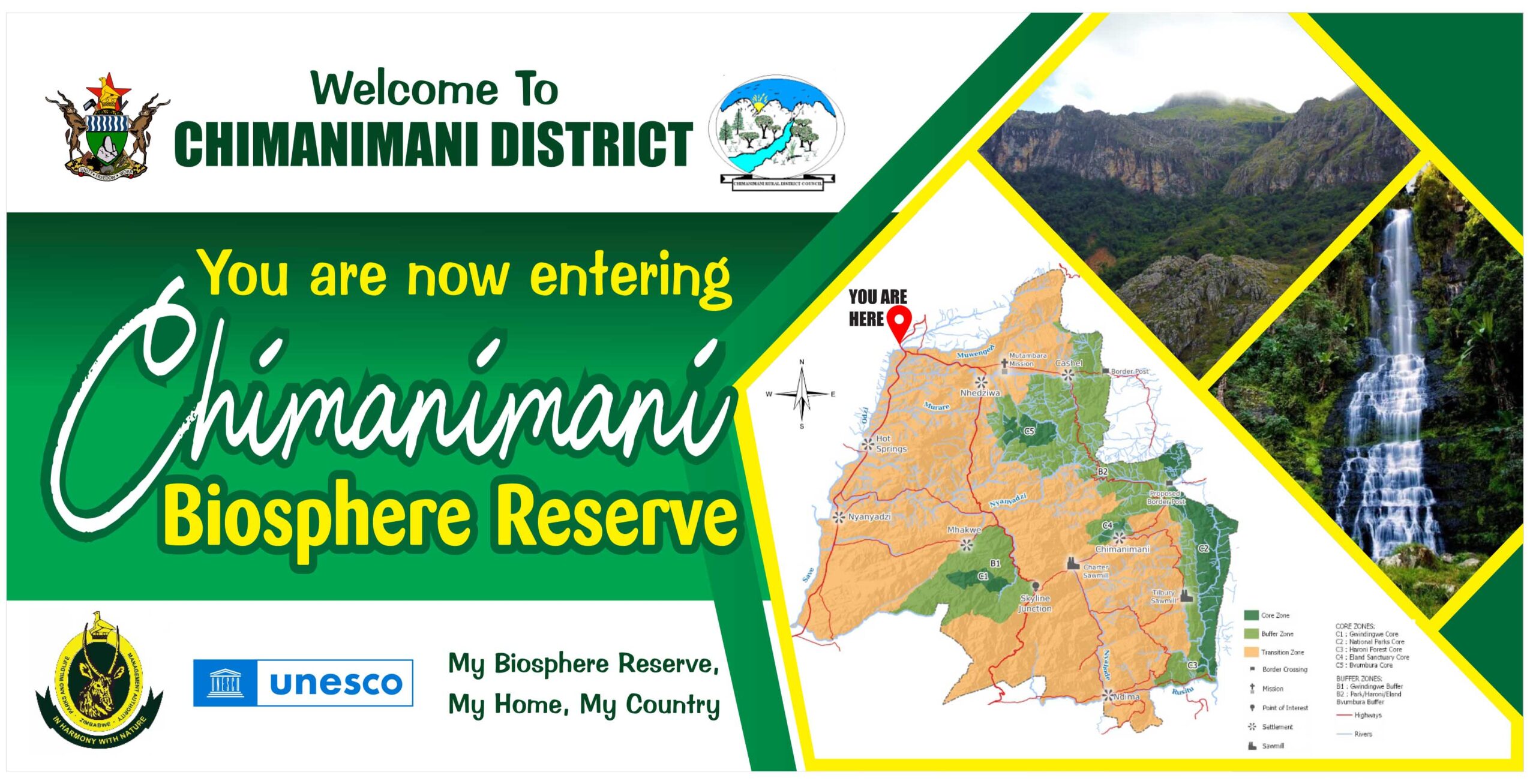
Chimanimani Biosphere Reserve Billboard with all the 3 zones
In June 2022, Chimanimani District was designated a Biosphere Reserve by UNESCO under the Man and Biosphere (MAB) Programme. Biosphere reserves are areas of terrestrial and coastal/marine ecosystems, or a combination thereof, which are internationally recognized within the framework of UNESCO’s Programme on Man and the Biosphere (MAB They are established to promote and demonstrate a balanced relationship between humans and the biosphere. Biosphere reserves are designated by the International Coordinating Council of the MAB Programme at the request of the State concerned. For Chimanimani district, the biosphere reserve encompasses all 23 wards with 3 zones created, core zone, buffer zone and transitional zone.
The core zones are surrounded by buffer zones, which cover a total of 52,052 ha. The Gwindingwe core zone in the southwestern part of the district is surrounded by the Gwindingwe buffer zone. Bvumbura core zone in the north is surrounded by the Bvumbura Buffer Zone while the Eland Sanctuary zone and Chimanimani National Park are surrounded by Eland Sanctuary and National Parks buffer zones respectively. The Bvumbura, Eland Sanctuary and National Park buffer zones form one large buffer zone stretching along the roughly 130 km long eastern border of the district with Mozambique. The buffer zones are under the jurisdiction of traditional leaders, Chimanimani Rural District Council and the state through the Department of National Parks and Wildlife. The buffer zones will: (i) control the spread of fire, exotic species and invasive species into the core area, (ii) enhance landscape conservation and reduce the risk of flooding, (iii) enhance watershed protection, (iv) safeguard wildlife and protected areas, and (v) reduce the risk of encroachment of human activities in the core areas, and (vi) provide opportunities for eco-cultural tourism.
Biodiversity conservation comprising botanical gardens that are under the jurisdiction of the state
- To conserve and sustain the unique biodiversity of plants and animals in Chimanimani;
- Preserve cultural diversity and heritage to strengthen the socio-cultural development;
- Contribute to climate risk resilience of the district through agroecology, eco-tourism, sustainable forestry and other ‘green’ economic activities that generate incomes and improve livelihoods;
- Ensure adequate and sustained ecosystem services derived from BR core and buffer zones and other watershed areas in the district;
- Prevent and transform conflicts related to land use, environmental hazards, resources and people-nature conflicts;
- Contribute to strengthening participatory governance and accountable, transparent local institutions at village, ward and district levels;
- Engage educational and research institutions to foster specialised monitoring and learning about Chimanimani plants, animals, people and culture;
- Create awareness about the Chimanimani Biosphere Reserve and share experience and information with a global network of biosphere supporters.
